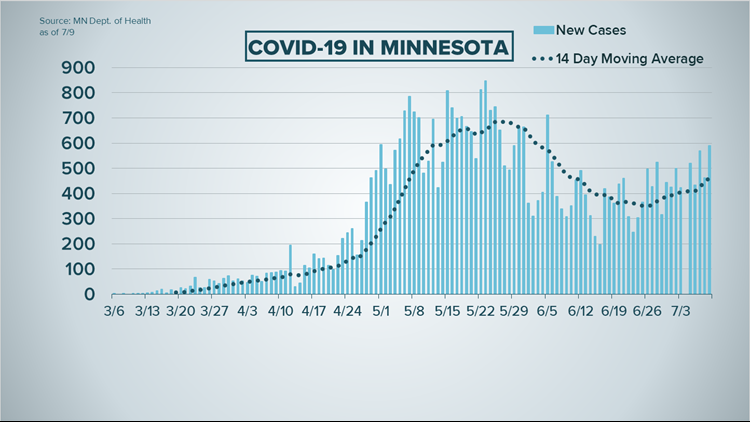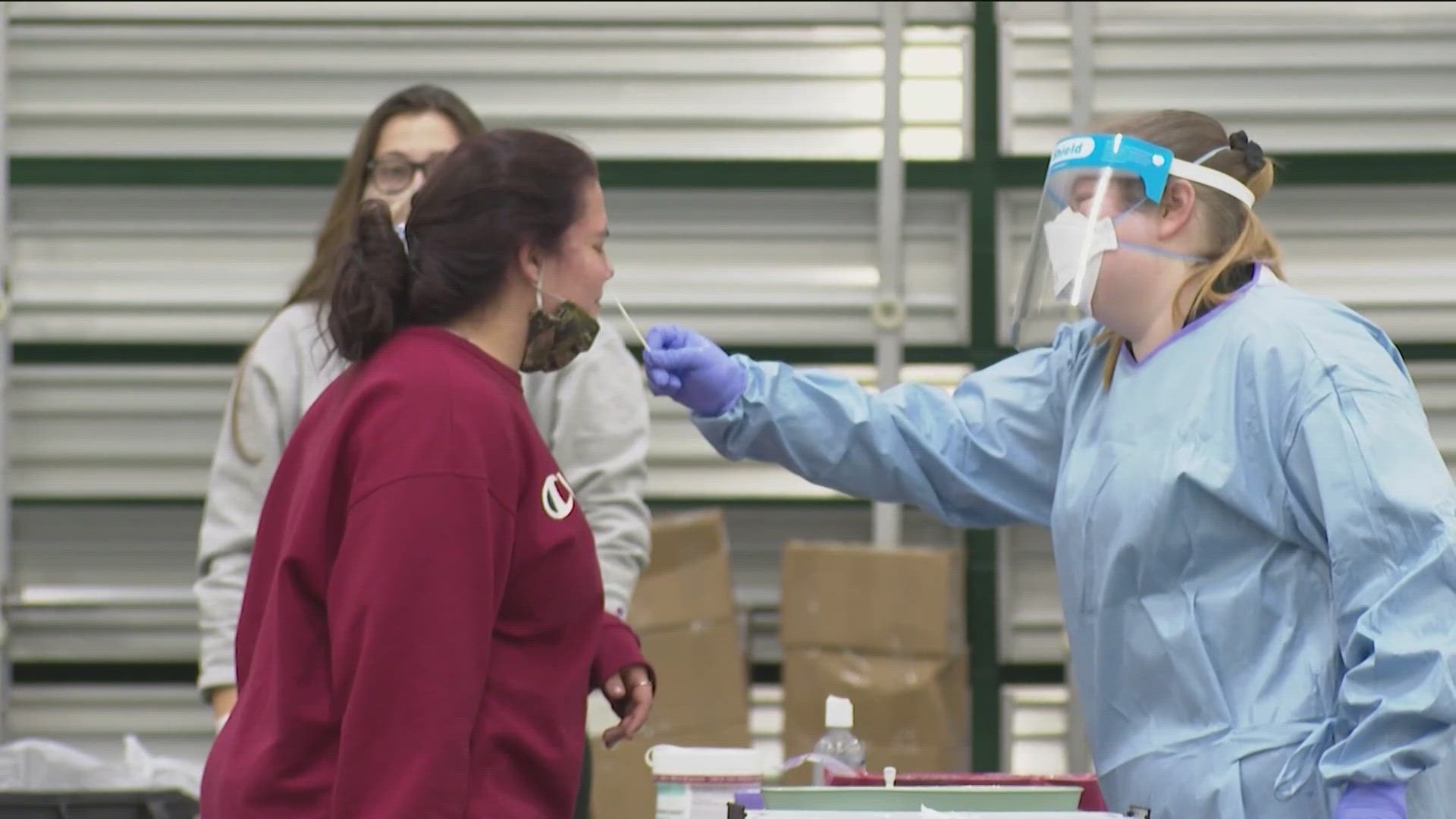Thursday July 9
11 a.m.
The Minnesota Department of Health (MDH) reported 589 newly confirmed COVID-19 cases on Thursday, which is the highest number so far this month.
MDH also reported five more deaths on Thursday, bringing the total death count to 1,490.
As of today 251 people are hospitalized due to COVID-19, with 116 of them in the ICU.
The number of cases among people ages 20-29 continues to increase, with 8,990 reported as of Wednesday. People in their 20s make up the age group with the most cases, followed by those in their 30s with 7,702. Minnesotans ages 80-89 have seen the most deaths of any age group, with 511 COVID-related deaths out of only 1,628 cases.
Wednesday, July 8
- Regarding a mask mandate, Gov. Walz says his administration is "trying to figure out how to best make it work."
- Minnesota's COVID-19 case positivity rate up from last week
- Bars and restaurants continue to drive transmission among young people
- Minnesotans ages 20-29 now represent 22% of COVID-19 cases
- MDH anticipates more testing supply chain shortages
- Officials warn against "COVID parties" to spread the virus
2:30 p.m.
Gov. Tim Walz answered questions about a potential mask mandate on Wednesday at a news conference, saying that he thinks there will be a decision soon.
"Wearing a mask, especially indoors, reduces the spread of COVID," Walz said. He said a recent study shows that 95% mask compliance could save 1,700 lives in Minnesota by November.
"We are looking at this question closely," he said. "We are trying to figure out how to best make it work."
Walz said he thinks in the "very near future" his administration will make some determinations, and they are considering plans that would impose mandates in certain areas instead of a blanket rule across the state.
Walz applauded decisions by Minnesota courts and some communities to implement mask mandates.
"Minnesota's on a good path," he said. "I say that optimistically but not naively, and cautiously ... we have to continue to make good decisions to stay on that path."
He said that increasing numbers in Iowa, Wisconsin and across the south "start to make us pause."



